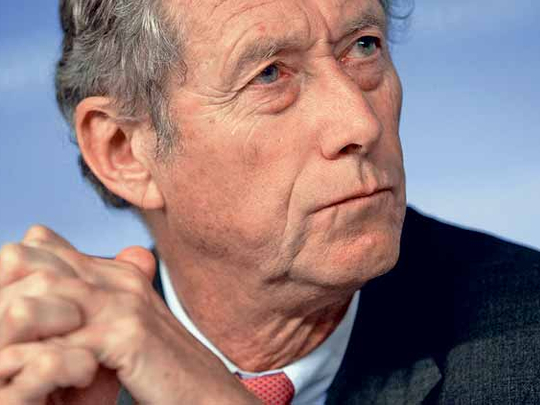
London : International Monetary Fund (IMF) economists challenged economic orthodoxy yesterday by suggesting that many pre-crisis policy tools should be redesigned and some sacred cows considered for slaughter.
A staff paper co-authored by Olivier Blanchard, IMF chief economist, says the financial and economic crisis has "exposed flaws in the pre-crisis policy framework" and "forces us to think about the architecture of post-crisis macro-economic policy".
Suggestions include raising inflation targets from about 2 per cent to about 4 per cent so that monetary policy can better respond to shocks; automatic lump-sum payments for poorer families if unemployment rises above certain thresholds; exchange-rate intervention for smaller economies that depend heavily on trade; and giving central banks huge new regulatory tools so they can smooth the path of the economy.
The political momentum behind many of the ideas is absent, Blanchard accepted. The IMF is taking a gamble by spelling out the flaws in current thinking, even if it is in a staff paper rather than formal recommendations.
Controversy
Some of the tools suggested have been used in the crisis, but boosting the Federal Reserve's powers, for instance, is highly controversial in the US.
The suggestion that inflation targets should be raised to 4 per cent will cause many central bankers to choke on their breakfasts, since they have spent their whole careers gaining and preserving the credibility of keeping inflation at levels close to 2 per cent.
Blanchard said the idea of raising inflation targets should not be seen as outlandish. "If we had had more margin to play with on interest rates, we would probably have had to use fiscal policy less [in the crisis]," he told the Financial Times. He recognised that higher inflation and higher interest rates in normal times would have costs, but they might be a price worth paying because they would make monetary policy more effective in crisis periods.
"Nobody knows the cost of inflation — between 2 per cent and 4 per cent — so I think people could get used to 4 per cent and the distortions could be small," said Blanchard.
He stressed that higher inflation targets were only one of many ideas that should be considered. He was particularly hopeful that the idea of central bankers having many policy tools, rather than just interest rates, would gain momentum.
The paper suggests giving central bankers "cyclical regulatory tools", including bank capital ratios to limit or expand leverage, liquidity ratios to regulate liquidity, loan-to-value limits to control domestic mortgage borrowing and margin requirements to have some control over equities.
For decades, central bankers' only tool has been the interest rate. Some economists have suggested these should be used more actively to "lean against the wind" of credit markets. But Blanchard robustly rejected such an approach. "[This] strikes me as totally stupid," he said.
The paper recognises that fiscal policy became a vital tool for boosting demand in the crisis, and says its success should be formalised with measures such as "temporary transfers targeted at low-income or liquidity-constrained households".
Many emerging markets needed to keep exchange rates stable, he said. They should stop saying they simply followed inflation targets, when active policies to stabilise exchange rates "were more sensible than their rhetoric".
— Financial Times












